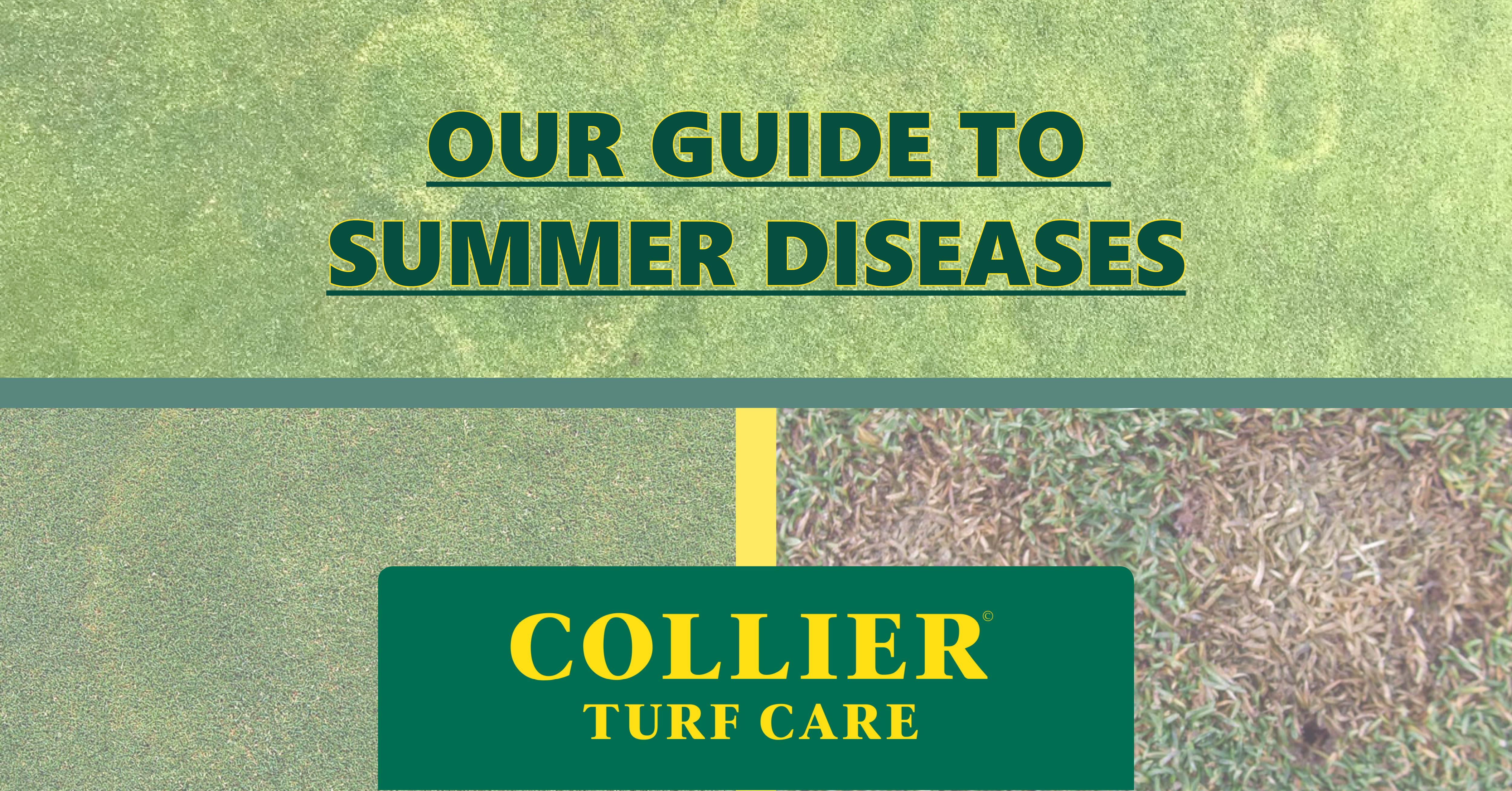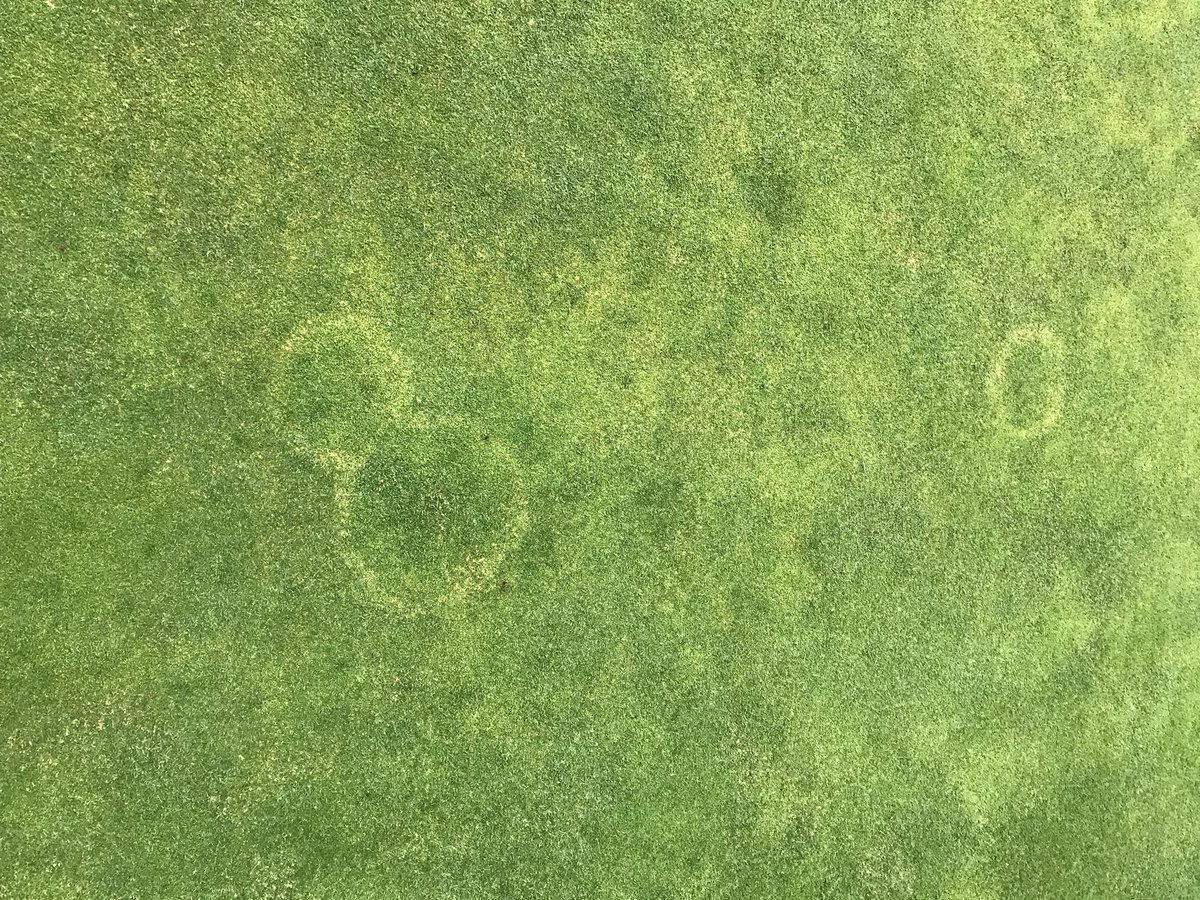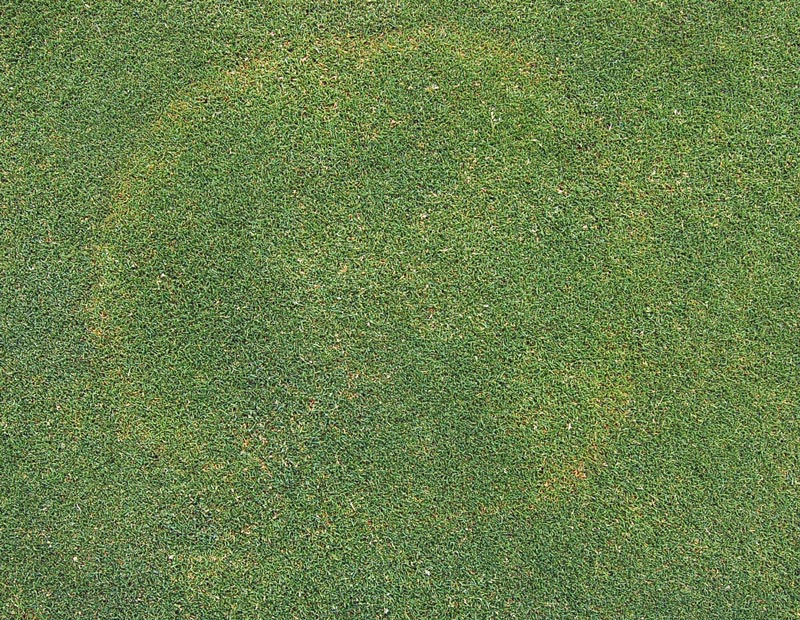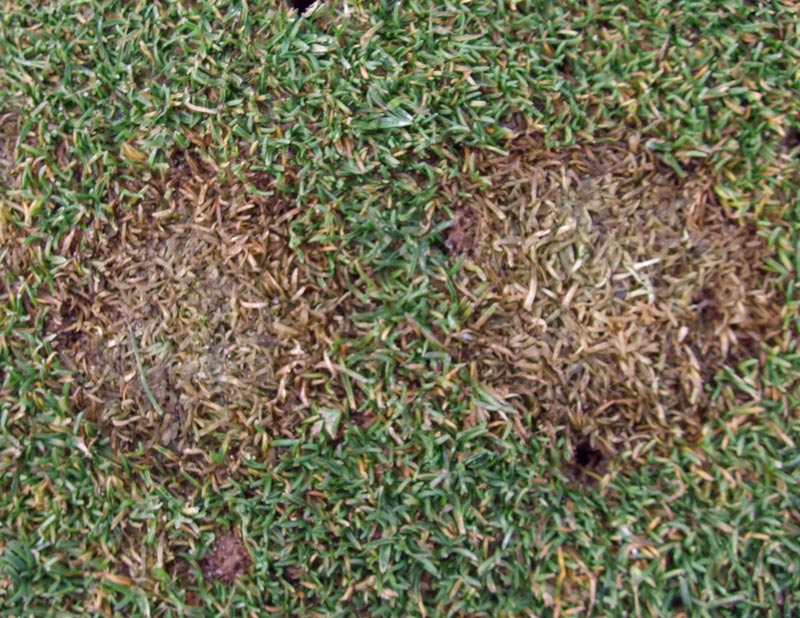Our Guide to Summer Diseases UPDATED
By Chris Humphrey MBPR FQA, Technical Manager

As we're now approaching the summer disease period, the hot weather has fired off Waitea Patch, Superficial Fairy Ring and Microdochium Nivale. Below is a brief summary of each and how to deal with these diseases.
Waitea Patch

Waitea Patch forms as yellowing rings of around 20-40cm in diameter that often join into large odd shapes (I often say that they look like Teletubbies).
It is a fungal disease that affects the leaves, stem, crown and upper roots. It only appears in the summer and is triggered by high heat and humidity. It needs temperatures of about 24 degrees plus and a humid environment. It is very similar in appearance to Superficial Fairy Rings. The way to tell the difference between Waitea Patch and Superficial Fairy Ring is that Waitea Patch is a leaf disease and therefore it does not cause a depression in the surface.
With Superficial Fairy Rings the soil also smells of mushrooms as it has mycelium within the soil, whereas Waitea Patch only has mycelium on the leaves. Waitea Patch will grow out, so keep the turf healthy and keep it well fed. We recommend using stress relief products such as Vitax Amino-Sorb F, ICL Vitalnova Stress Buster or Prestige Super Seaweed and reduce surface humidity by regular sorrel rolling.
There are no label approvals for fungicides however, customer practice does show that Heritage WSG will give a good level of control, but, sometimes it will require 2 applications 2 weeks apart. Apply at a rate of 400ltrs per Hectare and tank mix with Prestige Super Recovery. Lastly, try and avoid creating a humid environment by setting irrigation early in the morning when it is cool rather than in the evening.
Superficial Fairy Ring

Superficial Fairy Ring looks very similar to Waitea Patch, however, it is a soil based disease caused by basidiomycete fungi that lives in the thatch and soil. The yellow rings vary greatly in size and just like Waitea Patch they can join to form an odd shape. Sometimes you can also see a slight greening around the edge of the ring.
As it is a soil fungi it creates a depression that can be felt by rubbing your hand over the surface. If you dig into the soil you get a distinctive mushroom smell. Solid tine (not hollow tine as you could spread the fungi across the turf) any sunken areas and apply top dressing.
Use a wetting agent such as Prestige Super Replenish on a programme to ease any hydrophobicity that may be caused by the fungi. Apply iron (avoiding periods of high temperatures or drought) to mask the yellowing. Heritage WSG tank mixed with Prestige Super Recovery at a high water volume of around 800ltr per Hectare.
Microdochium Nivale - Summer Fusarium

Microdochium nivale is more commonly called Summer Fusarium. Many people are surprised to see outbreaks at this time of year and often don’t know what it is. This strain of Microdochium looks quite different from what we see in the autumn and winter. The patches can be quite wide spread across the turf and are generally just a ginger or copper colour circle, without the dead water soaked centres that we would normally see.
It can however be a little unsightly, especially when greenkeepers are often preparing for tournaments at this time of year and presentation is paramount. Summer Fusarium is triggered by grass under stress, periods of high humidity and wet grass. It is important to maintain a healthy plant and not just promote lush top growth with nitrogen.
Summer Fusarium is not generally considered to be as serious as the autumn and winter attacks, as it often grows out quite quickly and any scares that may develop are soon filled in. The best form of prevention is regular light balanced feeding and introducing stress reducing products such as Vitax Amino-Sorb F or ICL Vitalnova Stress Buster. If it does appear then treatment is either to, leave it and cross your fingers that it will grow out, or, as most customers can’t or won’t risk an outbreak, then an application of fungicide to control it, Heritage WSG will recycle around the plant and gives good longevity. The application of the fungicide can be vastly improved by tank mixing with Prestige Super Recovery. Water rate should be around 400ltrs per Hectare.
If you ever need help with identifying a disease on our turf, you can email us an image at sales@collier-turf-care.co.uk and we'll help you identify the disease and suggest to you the recommended products to deal with resolving it.